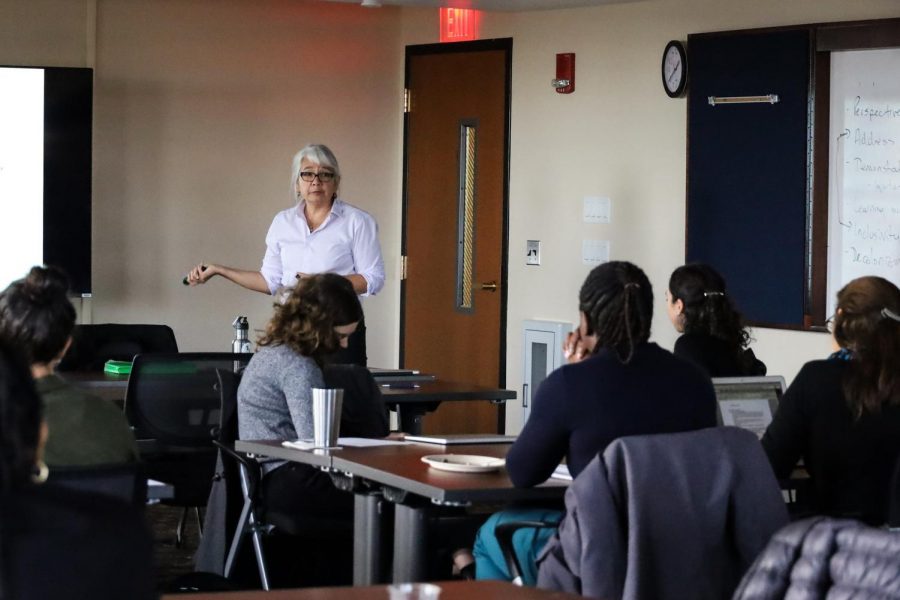As a new transfer student to the University of Massachusetts during this unprecedented health crisis and mass-migration to online learning, I had one question: Will my school lower tuition since we are learning remotely? The short answer is no. You can read the long answer here.
The reasoning that the University gave is that its costs have not gone down, and the quality of the education we are receiving is the same. While the current COVID-19 mitigation measures are necessary, there should have been a tuition reduction for this semester because we are not actually receiving the same quality of education through remote learning. If the school needs to make up for budget cuts, the money should not come from us.
The idea that these two teaching formats are equally valuable is absurd on its face. Online learning is not only inferior to in-person lectures in a general sense, but adapting to a completely new format as quickly as we did makes it even worse. Much of the research comparing in-person to online classes was done prior to the current crisis, and often included people who knew what they signed up for, which makes it non-applicable to today’s situation. Most members of this cohort of students would likely never have signed up for an online semester, given the choice. On top of that, most of the professors have spent their entire careers teaching in lecture halls. Many of them do not have the experience necessary to teach effectively in an entirely new format.
The limited research done on online learning shows that, on average, most students perform worse in and subjectively view online classes as more difficult than in-person alternatives. This particular study examined the effects on two randomly assigned groups of high school algebra students on their school performance — one online, and one in-person. This makes the study more convincing because when students self-select, they will choose the format they are more comfortable with, and likely to perform better in.
It is also true that students who already have issues in school feel the negative effects even more. This is why it is unsurprising that members of minority groups (and male students, though they are not a marginalized group in the sense we use the term) had even worse outcomes in an online learning environment than they did in regular classes.
This suggests that online learning is not as valuable as regular classes.
UMass’s rationale is that they are equivalent in value, but if online learning is of the same quality as traditional learning, then why is the online program through UMass cheaper than attending the school in person? Online classes range from $402 to $482 for online courses through University Without Walls. Assuming a full-time schedule with 15 credits per semester, the cost would be between $6,030 and $7,230. Meanwhile, our undergraduate tuition this year is $7,895.50 in-state, and $17,889.50 for out-of-state students. Most students are not attracted to online classes. If they were, the price of online classes would be higher regardless of the public health situation. However, when students come to college, many of them are not just paying for specific skills or a specific standard of academic training; they are also paying for an experience. According to an Axios poll, most “traditional aged” students see the switch to online learning as less valuable than in-person classes.
Then comes the final objection raised by the school: its expenses. In its explanation, the school wrote, “In some cases, the cost of providing remote instruction is actually higher than in person, as a result of the technological resources required.” Vague wording aside (“in some cases” does not necessarily mean “this case”), this is not an argument in favor of keeping tuition levels the same, per se. The school needs to justify its decision more forcefully if it wants to convince anyone that it did the right thing.
Simply because there is a budget shortfall does not mean that we, the students, are the ones who must take the hit. There are other places for the university to make up the difference. As of last year, the endowment for UMass Amherst was $363 million. According Harvey Silverglate, writing for WGBH, “The entire UMass system has lately expanded its handsomely-paid bureaucracy.” Silverglate also pointed out that Martin Meehan, the president of the UMass system, gets paid at least $769,500 annually. In other words, the school does not have to sell us an inferior product at the same price. I’d suggest that it free up some additional funding, if needed, by reversing the “administrative bloat” that has been growing in UMass, as well as colleges around the country, for decades.
What is this about, then, if not the quality of our education or the absence of funds? Budget cuts reveal priorities, and a tuition reduction would have prioritized us.
Joseph Ellis is a Collegian contributor and can be reached at [email protected].



















